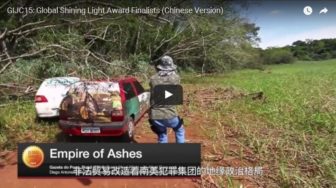Investigative Reporting in Repressive Regimes
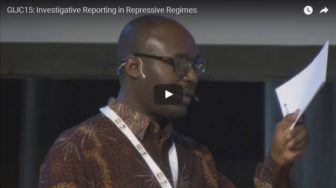 Angolan investigative reporter and anti-corruption activist Rafael Marques de Morais is editor of the newssite MakaAngola and author of the book “Blood Diamonds; Corruption and Torture in Angola.” In his book, Marques de Morais accuses some of Angolas top generals of human rights violations and corruption, an accusation that recently led to him being convicted for “defamation.” Marques de Morais has received several awards for his work, in March he received the Freedom of Expression award from the UK-based Index on Censorship.
Angolan investigative reporter and anti-corruption activist Rafael Marques de Morais is editor of the newssite MakaAngola and author of the book “Blood Diamonds; Corruption and Torture in Angola.” In his book, Marques de Morais accuses some of Angolas top generals of human rights violations and corruption, an accusation that recently led to him being convicted for “defamation.” Marques de Morais has received several awards for his work, in March he received the Freedom of Expression award from the UK-based Index on Censorship.
Investigating Modern Slavery
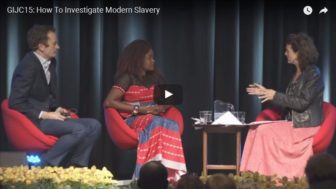 The aim of this talk is to instruct others, to learn from our successes and failures and to alert them to the best ways of reporting the issue.
The aim of this talk is to instruct others, to learn from our successes and failures and to alert them to the best ways of reporting the issue.
Irish investigative reporter Sean O’Driscoll focuses on conditions for migrant workers in the Gulf states and gives insight into the realities of police surveillance, media bribery, harassment and deportation in these countries. Tobore Ovuoire from Nigeria’s Premium Times went undercover to unravel how trafficking rings operate as proper organised crime syndicates.
How to investigate disasters
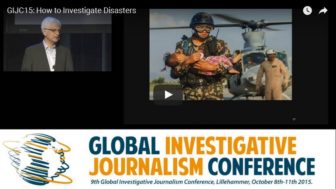 Editor Kunda Dixit in Nepali Times was in the midst of it when the earth started shaking in his hometown Kathmandu.25th of April 2015. The giant 7.8 earthquake caused catastrophic scenes in and around the city.
Editor Kunda Dixit in Nepali Times was in the midst of it when the earth started shaking in his hometown Kathmandu.25th of April 2015. The giant 7.8 earthquake caused catastrophic scenes in and around the city.
Chief investigative Correspondent at Japanese broadcaster NHK, Yoichiro Tateiwa, focuses on how his team of Nuclear Watch uncovers what’s happening in Fukushima Daiichi. The TV station ran a story featuring the CEO of Tokyo Electric Power Company thinking that Japanese government set schedule of the decommissioning process is not realistic.
The new start-up Coda are designing a new model of covering disasters and crises that will allow journalists to stay on the story, providing deep, intimate insight into complex events that shape our world.
Investigating Health Issues: Ebola
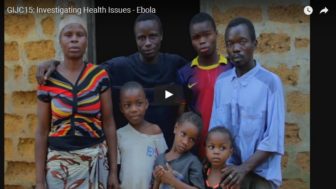 The most widespread epidemic of Ebola virus disease in global history started in West Africa in December 2013. The mortality rate among infected patient groups was as high as 70 percent in countries like Liberia, Sierra Leone and Guinea.
The most widespread epidemic of Ebola virus disease in global history started in West Africa in December 2013. The mortality rate among infected patient groups was as high as 70 percent in countries like Liberia, Sierra Leone and Guinea.
GIJC Gala Dinner and Award ceremony
ABC in Investigative Journalism
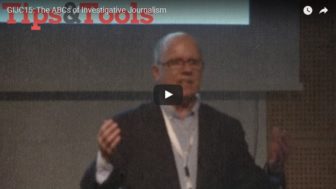 From idea to publishing – this classic session gives you important tips on how to make sure your investigative project becomes a success. It will give you important tips on how to examine your own idea, how to convince human sources to cooperate with you, how to get the evidence you need, how to demand accountability and how to make sure that everything you publish is accurate, fair and relevant.
From idea to publishing – this classic session gives you important tips on how to make sure your investigative project becomes a success. It will give you important tips on how to examine your own idea, how to convince human sources to cooperate with you, how to get the evidence you need, how to demand accountability and how to make sure that everything you publish is accurate, fair and relevant.
Investigating Environmental Crime: Pirate Fishing
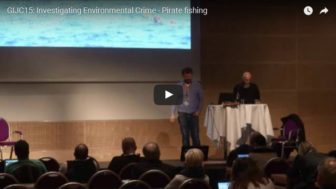 For more than 100 days the Norwegian-built trawler «Thunder» has been chased across three oceans, suspected of fraud and illegal fishing. A secret Interpol mission named «Spillway» is being directed from Norway.” This was the opening lines of a Documentary, published in March this year in the Norwegian Business Daily. For more than three months reporters Eskil Engdal and Kjetil Saeter was in almost daily contact with Sea Shepherd Captain Peter Hammarstedt on the “MV Bob Barker”, who for months followed the poacher “Thunder” from the shadowlands in Antarctica to a wet grave outside West-Africa.
For more than 100 days the Norwegian-built trawler «Thunder» has been chased across three oceans, suspected of fraud and illegal fishing. A secret Interpol mission named «Spillway» is being directed from Norway.” This was the opening lines of a Documentary, published in March this year in the Norwegian Business Daily. For more than three months reporters Eskil Engdal and Kjetil Saeter was in almost daily contact with Sea Shepherd Captain Peter Hammarstedt on the “MV Bob Barker”, who for months followed the poacher “Thunder” from the shadowlands in Antarctica to a wet grave outside West-Africa.
New Models and Startups
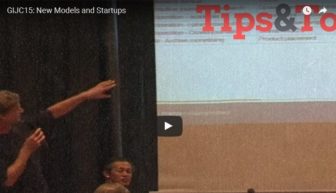 What are the secrets of successful startups? What new models can we apply to create viable homes for investigative journalism? We’ve brought together four great minds working on these issues, with plenty of tips for those ready to launch investigative newsrooms, online publications, cross-border projects, training centers, and more. Teun Gautier will talk about the results of a new study on new models, drawing on his own extensive experience with startups. Kim Yong Jin will explain the success of Newstapa, Korea’s video-based investigative nonprofit, which has more than 30,000 dues-paying members. And Correct!v’s Christan Humborg will talk about the group’s ambitious business plans to ensure that Germany’s first nonprofit investigative newsroom is sustainable. Tying it all together will be Reg Chua, Thomson Reuters’ Data and Innovation Editor.
What are the secrets of successful startups? What new models can we apply to create viable homes for investigative journalism? We’ve brought together four great minds working on these issues, with plenty of tips for those ready to launch investigative newsrooms, online publications, cross-border projects, training centers, and more. Teun Gautier will talk about the results of a new study on new models, drawing on his own extensive experience with startups. Kim Yong Jin will explain the success of Newstapa, Korea’s video-based investigative nonprofit, which has more than 30,000 dues-paying members. And Correct!v’s Christan Humborg will talk about the group’s ambitious business plans to ensure that Germany’s first nonprofit investigative newsroom is sustainable. Tying it all together will be Reg Chua, Thomson Reuters’ Data and Innovation Editor.
Crowdfunding: Projects, Stories and Startups
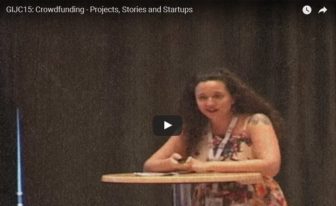 Crowdfunding is the process of convincing typically a large group of people to contribute small sums of money toward a specific project, usually via the Internet. At a time when the media is struggling to fund serious journalism, crowdfunding is helping redefine what’s possible — whether you’re raising money for one story or a new organization. Today, there are hundreds of crowdfunding sites worldwide. Most crowdfunded journalism projects raise modest amounts, but there are some notable big successes. What’s the secret to a successful campaign? What tools do you use? Here are journalists with first-hand experience in the field — from a million-Euro startup in Germany to an investigative center in Brazil and an online publisher in Malaysia.
Crowdfunding is the process of convincing typically a large group of people to contribute small sums of money toward a specific project, usually via the Internet. At a time when the media is struggling to fund serious journalism, crowdfunding is helping redefine what’s possible — whether you’re raising money for one story or a new organization. Today, there are hundreds of crowdfunding sites worldwide. Most crowdfunded journalism projects raise modest amounts, but there are some notable big successes. What’s the secret to a successful campaign? What tools do you use? Here are journalists with first-hand experience in the field — from a million-Euro startup in Germany to an investigative center in Brazil and an online publisher in Malaysia.
Investigating on Foreign Ground
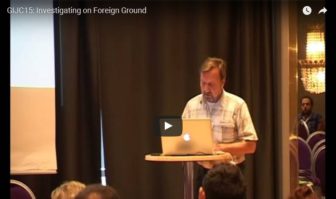 How do you conduct a critical investigation on foreign soil? You don’t know the language or landscape, and you still need to protect your sources. How can you film or report, when you “flash” so much that everything stops around you or you risk being arrested? And what’s hit and run television? Award-winning documentarian Tom Heinemann shares practical examples in this session.
How do you conduct a critical investigation on foreign soil? You don’t know the language or landscape, and you still need to protect your sources. How can you film or report, when you “flash” so much that everything stops around you or you risk being arrested? And what’s hit and run television? Award-winning documentarian Tom Heinemann shares practical examples in this session.
Documentary Filmmaker and Activist
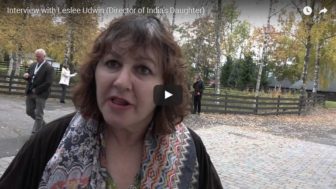 Documentary filmmaker and activist Leslee Udwin tells about her work in producing India’s Daughter.
Documentary filmmaker and activist Leslee Udwin tells about her work in producing India’s Daughter.

